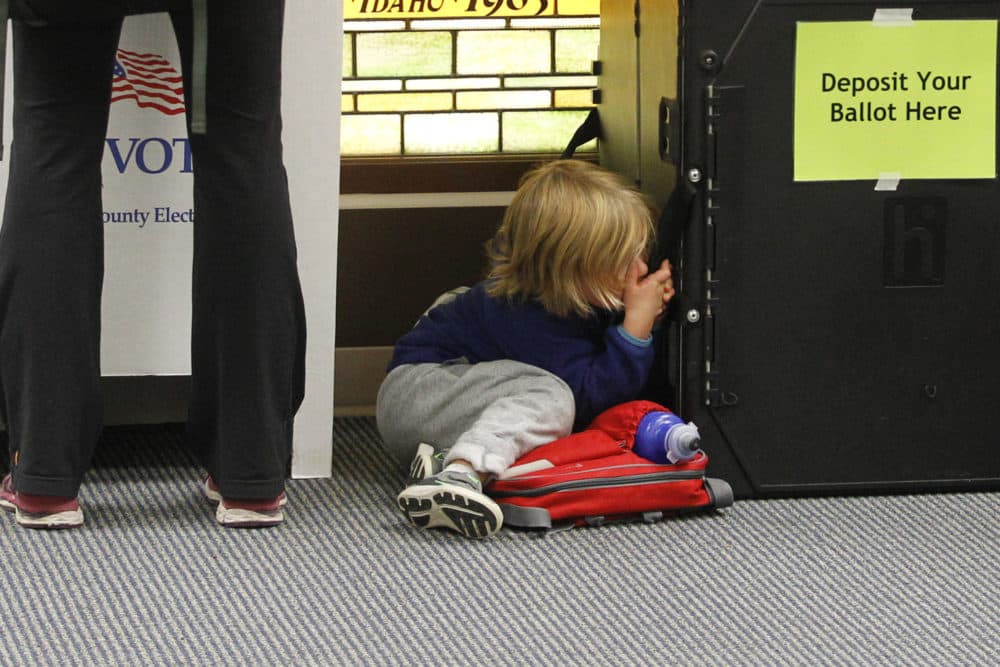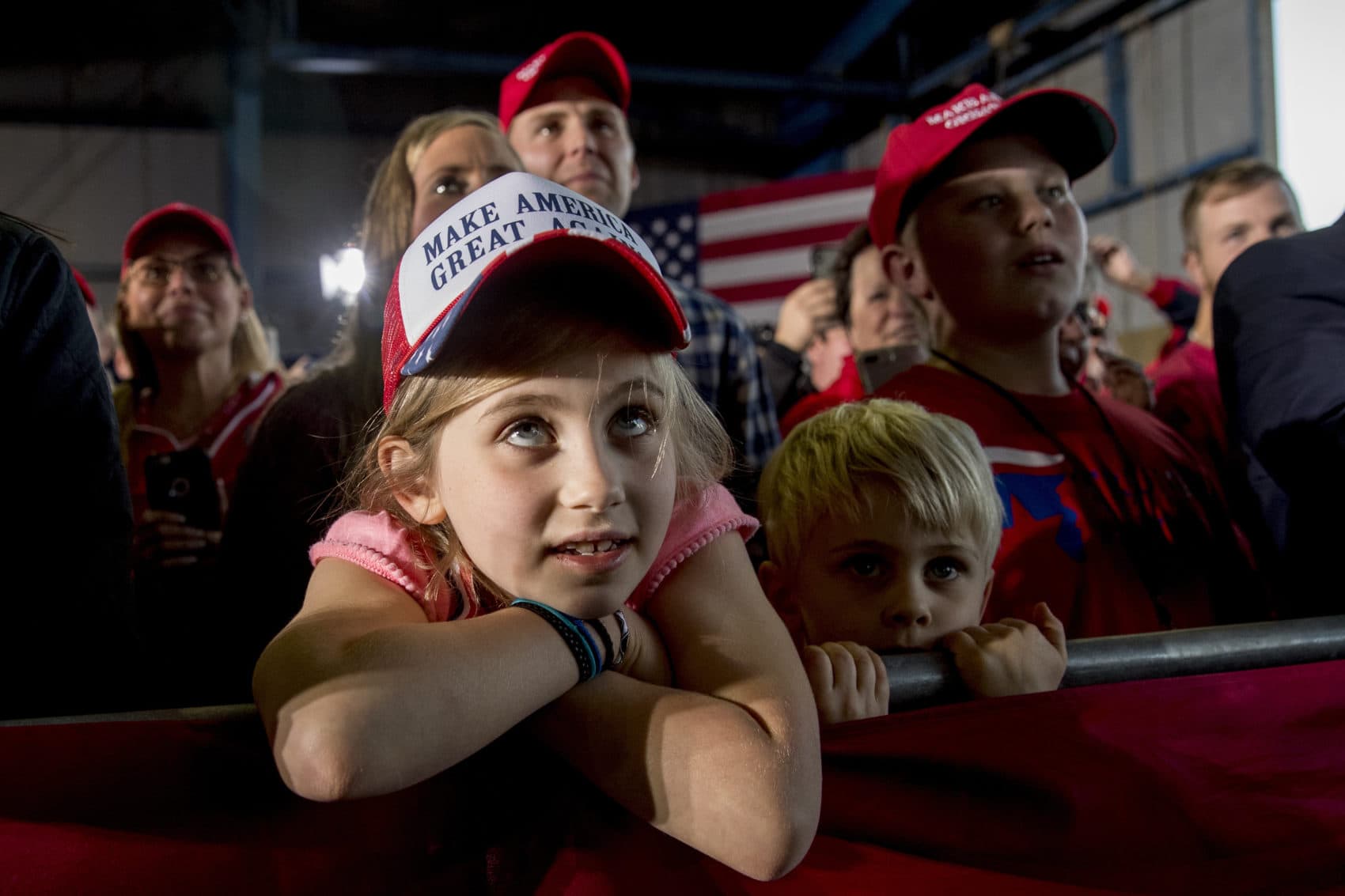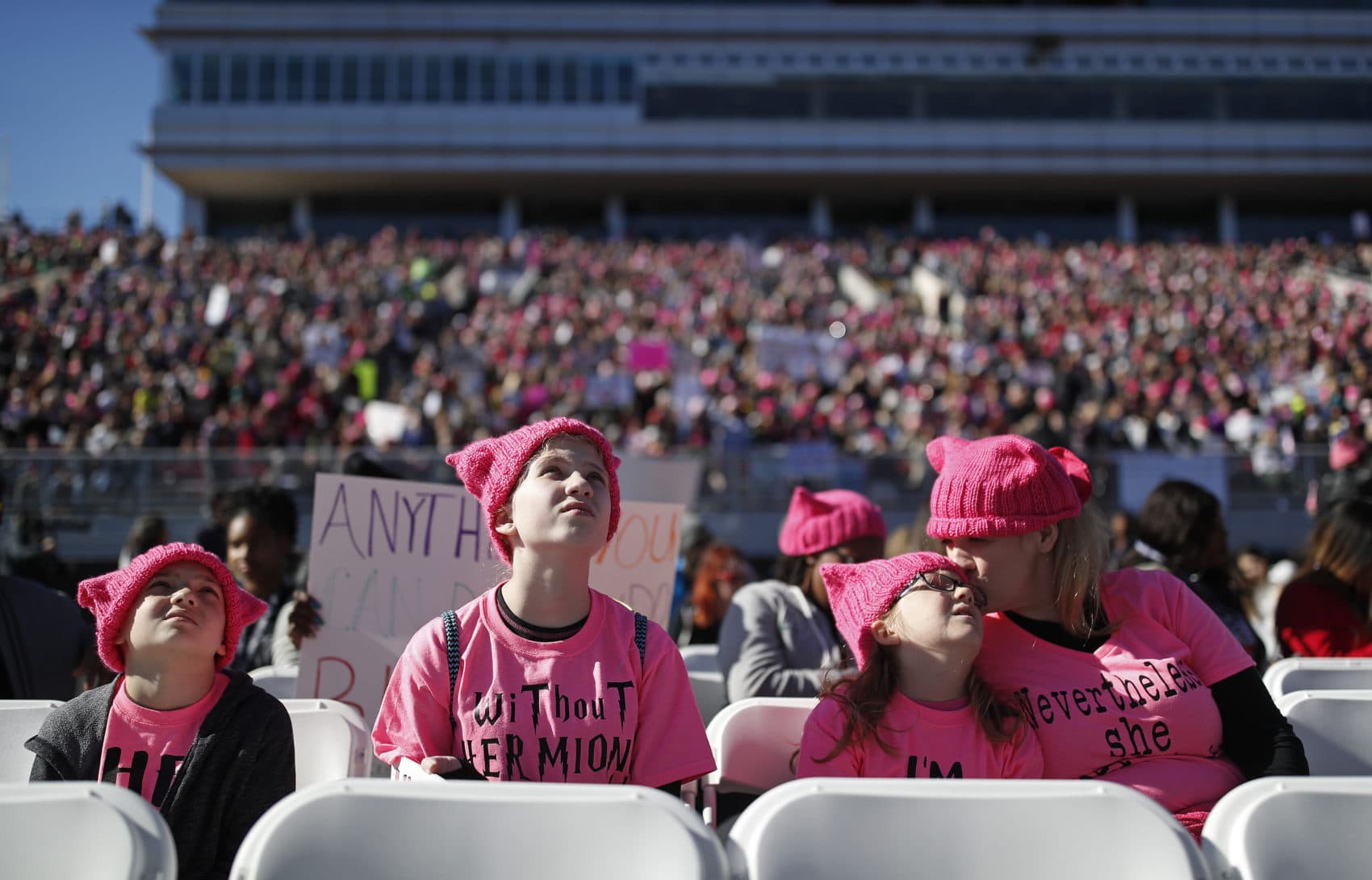Advertisement
Commentary
Putting The Election In Perspective, For Our Kids (And For Ourselves)

According to the candidates and parties whose voices fill our airways and mailboxes this November, this election is one of apocalyptic magnitude. Those running are defenders of freedom and democracy, the only things standing between us and certain ruin. Their opponents? Threats to our homes and our families. Tools of our enemies, Nazis and Communists, handing out automatic weapons to wrongdoers while preventing responsible citizens from protecting themselves. Dumpster fires, the whole lot of them.
Listen to enough of it — or to enough of those of us who are passionately engaged in this process, fiercely not-debating among our mostly like-minded friends — and you might be excused for thinking that on the morning after the election, we risk waking up stripped of not just our rights or our guns but our jobs and our homes and our safety.
Especially if you’re 6-years-old and the people doing the shouting are your parents.

Many of us need to take a step back and remind our kids — and ourselves — that no matter who wins this round, on the morning of November 7, 2018, barring natural or man-made disaster, our homes will still be standing. We will get up and go about our days still served by the modern conveniences that make our lives so much easier than those of our ancestors. We may be disappointed, we may be delighted. We may have renewed hope for the future or fresh fears — but fundamentally we will be okay. And it’s our job, as parents, to make sure our children understand that.
I know many of us think we’re far from “okay”. The threats we see, whether from disparities of wealth and opportunity or the demise of our treasured institutions, loom large. Our panicking amygdalas want to wave hyperbolic flags so that everyone everywhere can see that things are getting really bad. Semi-automatic weapons are everywhere. Hordes of illegal aliens are descending on our borders. Everything is scary, scary, scary.
To which we really need our pre-frontal cortexes to respond: Shhh, honey. You’ll frighten the kids.
We may have renewed hope for the future or fresh fears -- but fundamentally we will be okay. And it’s our job, as parents, to make sure our children understand that.
Many children woke up frightened after the 2016 elections. In the days and weeks that followed, parents and teachers had explaining to do. Even the children of the victorious voters worried they would be ostracized.
Those fears didn’t come from our children’s unchecked media habits. Our first graders weren’t staying up late watching CNN and Fox; our preschoolers didn’t struggle to tear themselves away from Twitter and Facebook. They came from us, as we turned our radios up, yelled back at our television screens and ranted to one another — and sometimes to them — about the high emotions we were feeling ourselves.
Some of that fear can be justified, particularly for immigrant families. Hate crimes have risen, and many feel increasing racial tensions since the election (although the same was said after the election of Obama in 2008).
Much of it was not. The day to day lives of most children did not change after the last election and will not change after this one. As to how the results will affect their future prospects? Really, that’s exactly what we’re voting on.
Advertisement

This 2018 election is a chance to reset those children’s fears, and to remind them that there is nothing scary about our family, friends and neighbors going to the polls in support of policies and candidates they believe in, or in opposition to those they do not — even when we do not agree. This is our system; this is how we do things, this is the very biggest expression of what we stand for as a country. We argue, we vote, and then — in theory — we shake hands on the result and start hashing out a compromise. We might not like the result as much as we liked the promises we voted for. But if we can only act when we are all in agreement, then we will never act.
When children can point to the signs of political candidates and identify the bad ones based on nothing but shades of red and blue and a dedicated policy wonk can crunch the numbers and conclude that 78 million Americans hate the other political party, it becomes pretty clear who is bringing the boogeyman home and installing it under our kids’ beds. We have met the enemy, as Walt Kelly once said, and he is us. Partisan loathing has become the easiest outlet for the various ways we feel disappointed by our government, and in election season we wear it on our sleeves, and then we hand it down, making the bipartisanship and cooperation that many of us want from our government more difficult, and the civility we want to see restored farther away than ever.
There are grave issues at stake in this election — and in every election. If we want to raise our children to vote, to think, to be open to political discourse and new ideas and a broad and diverse array of people and thoughts and values, we cannot keep up this level of every election might be your last fearmongering — even if the candidates do. As parents, we can pass on a different message: an election is not an apocalypse, but an opportunity to discuss and debate and be heard, and no one ever has the final word. So keep your cool, kids, and take a deep breath. We’ll be doing this again in two years.
